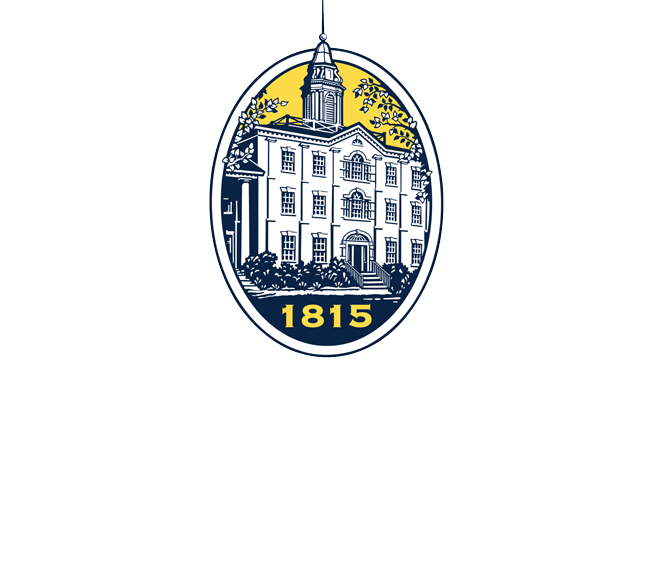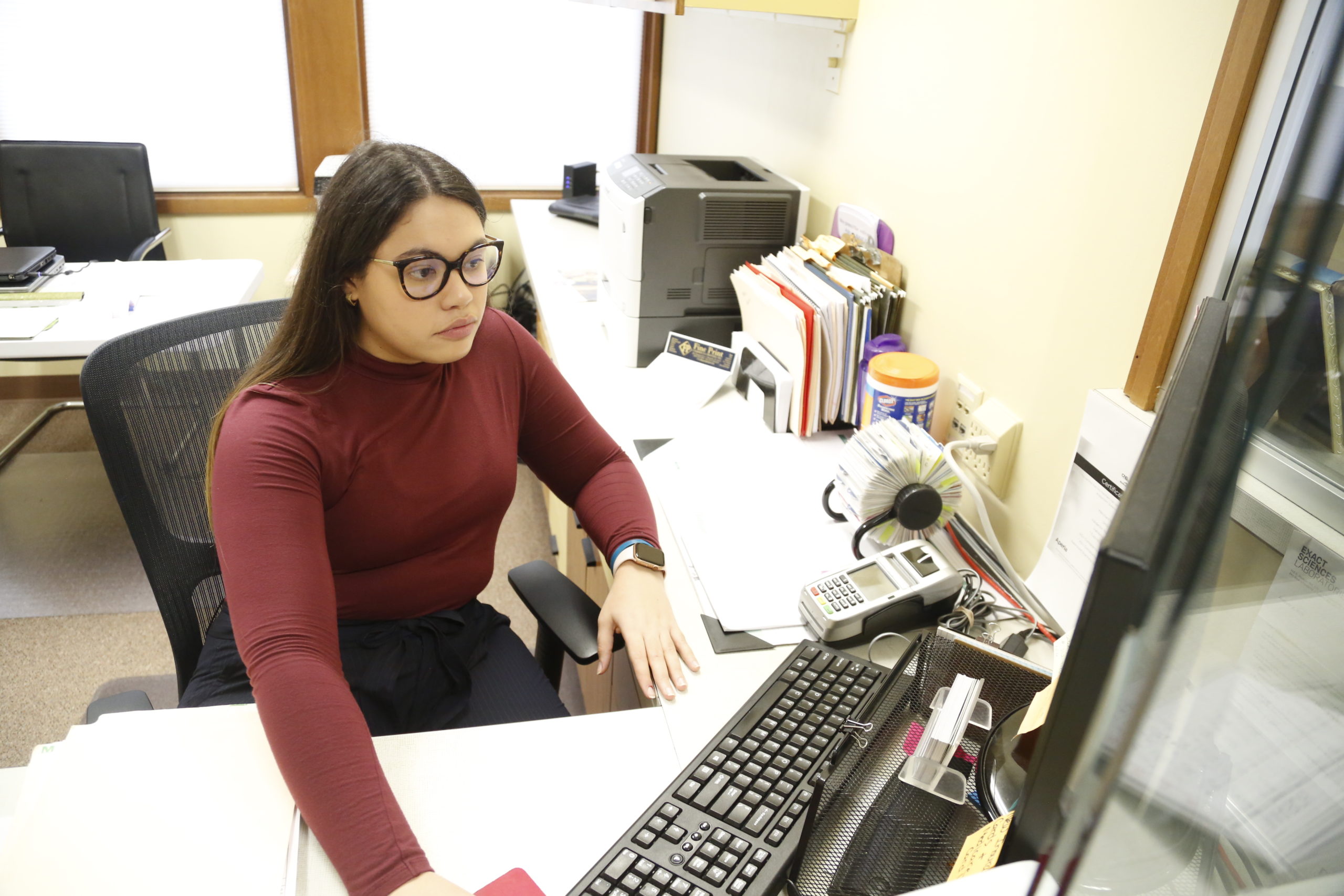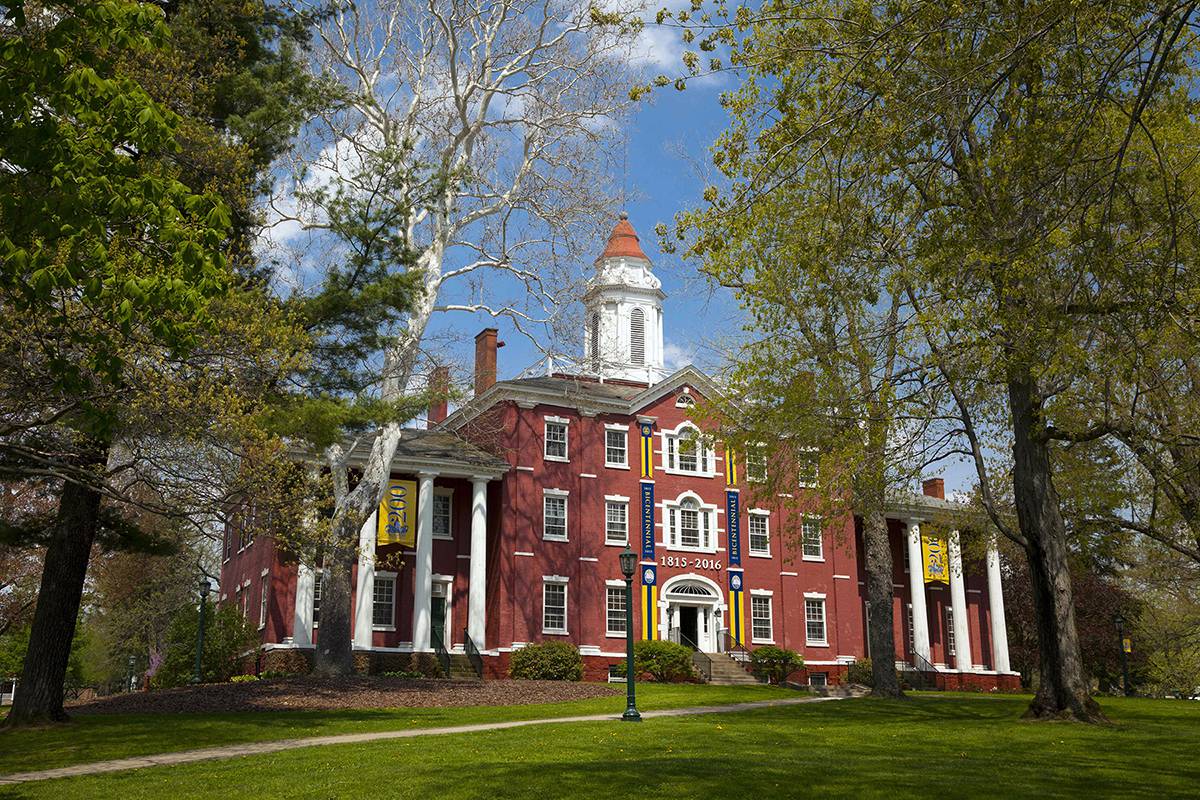Social and Behavioral Sciences
Business Major
Allegheny Business students gain a competitive advantage. We’ll equip you with analytical, problem-solving, and communication skills that you'll apply in internships and other career-building opportunities. We'll prepare you to lead as an in-demand professional — and difference-maker in society.
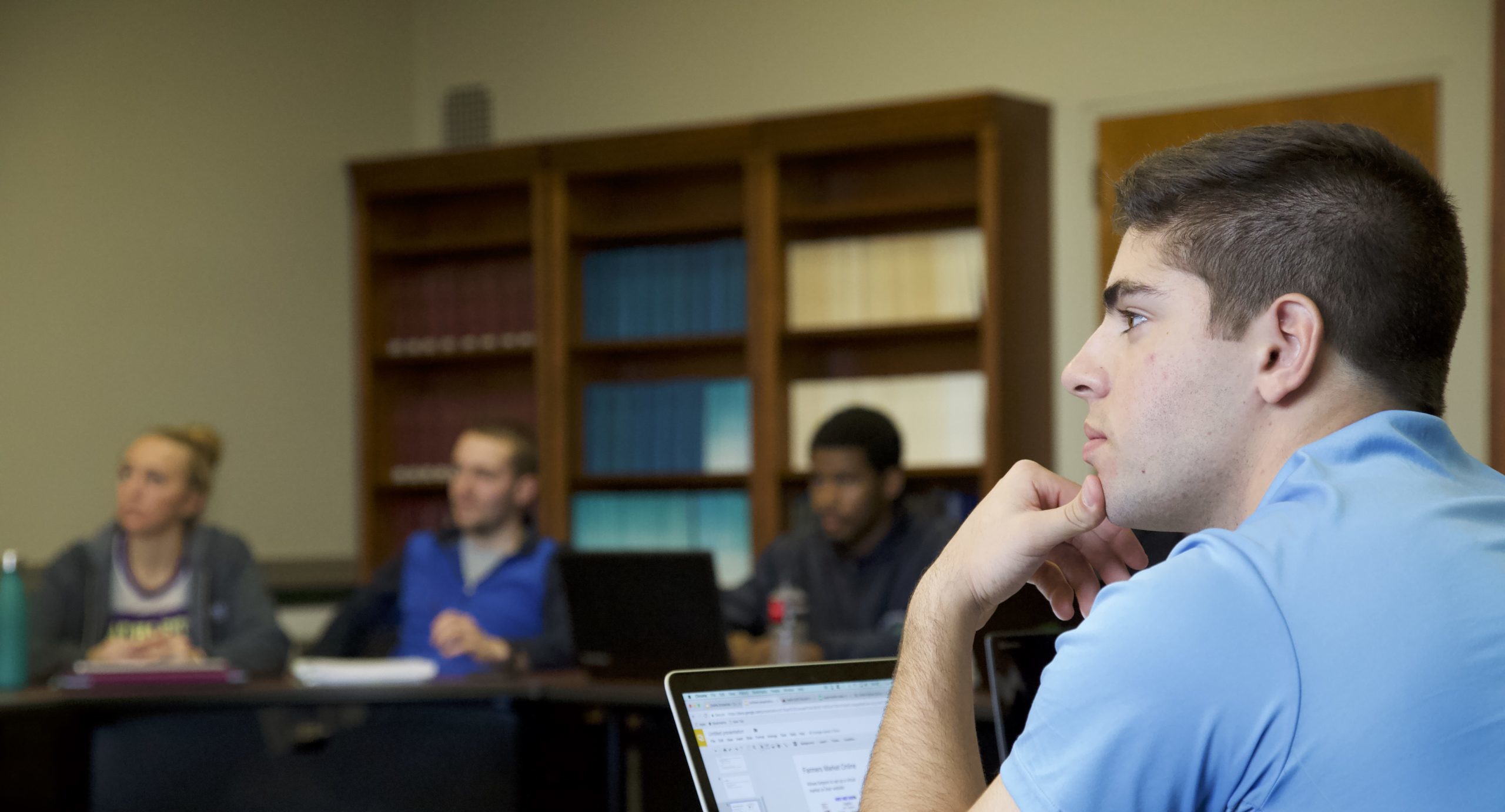
Learn how we empower students for success by emphasizing real-world experience and providing a strong liberal arts foundation. Our graduates learn how they can use their financial insight and management expertise to serve humanity and leave a lasting legacy.
Your Four-Year Journey
Through course work that emphasizes analytical, quantitative, and communication skills, as well as experiential learning, students are well prepared for careers in the business, finance, entrepreneurship, marketing, and nonprofit sectors. Business majors learn to analyze, measure, and communicate solutions to problems facing individuals, businesses, non-profits, and other organizations. Hands-on experiential learning infuses the major, letting students apply what they learn in the classroom to helping people in the real world.
Understanding
Students take Introduction to Microeconomics and Macroeconomics to build a foundation for understanding how businesses operate in the economy. They meet student Fellows of the Bruce R. Thompson Center for Business and Economics (CBE), faculty and staff, alumni and other visitors to campus, who will provide guidance and mentoring. Attending CBE events, such as the Lunchtime Learning series, will help students chose among courses of study and career paths.
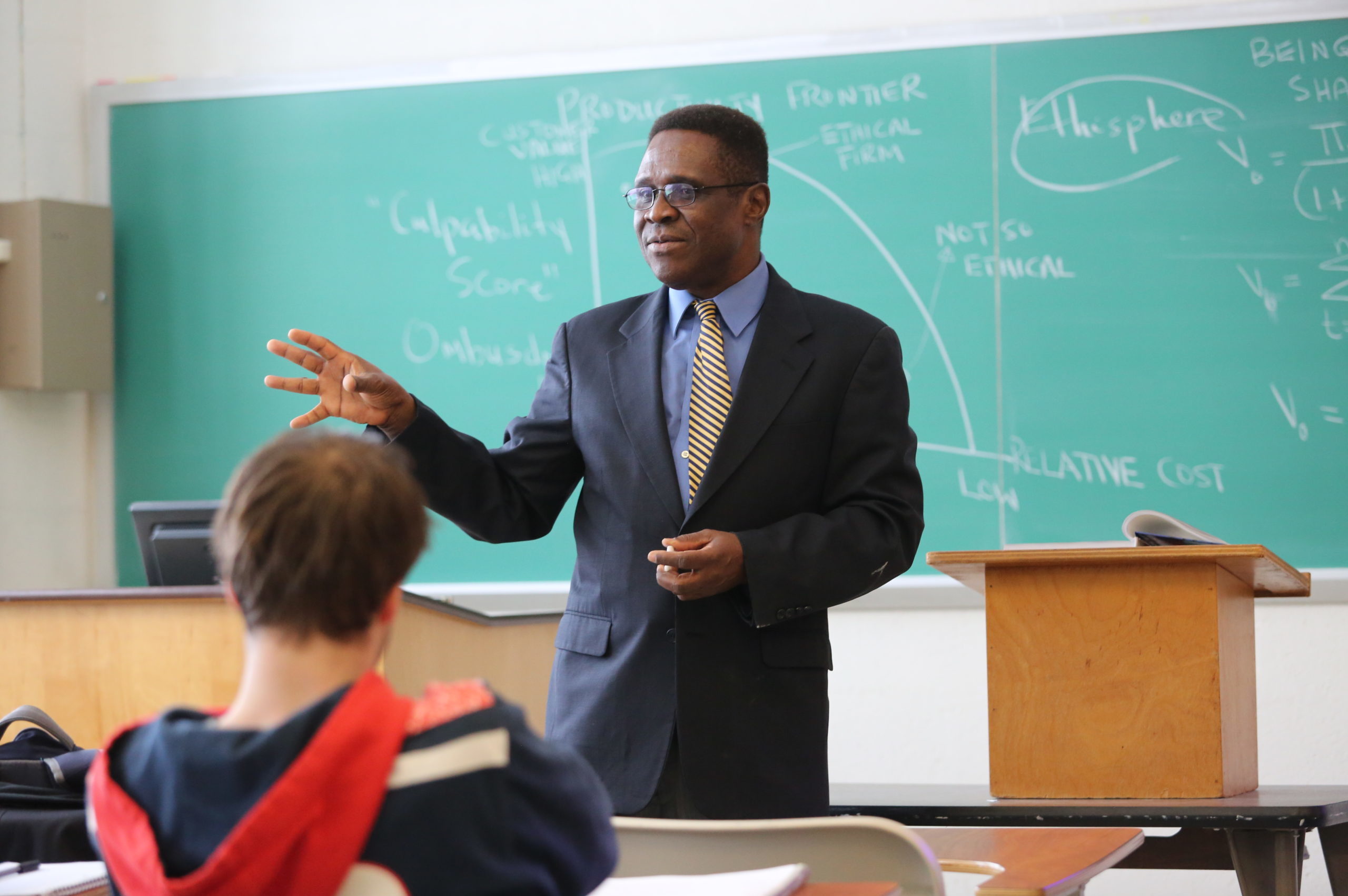
New Approaches
During their third year, students start to specialize, taking field courses in areas such as Accounting, Entrepreneurship, Finance, Human Resource Management, Marketing, Management. Besides their coursework, they have important side-jobs: applying their in-class experiences to understand and help decision-making by individuals and organizations, building their professional networks, and finding an internship for the following summer. By this time, students may be CBE Fellows, earned their Bloomberg Certification, or become members of the Wealth Management Club, Women in Business and Economics Club, or ODE, the national Economics Honors Society (open to both Business and Economics majors).
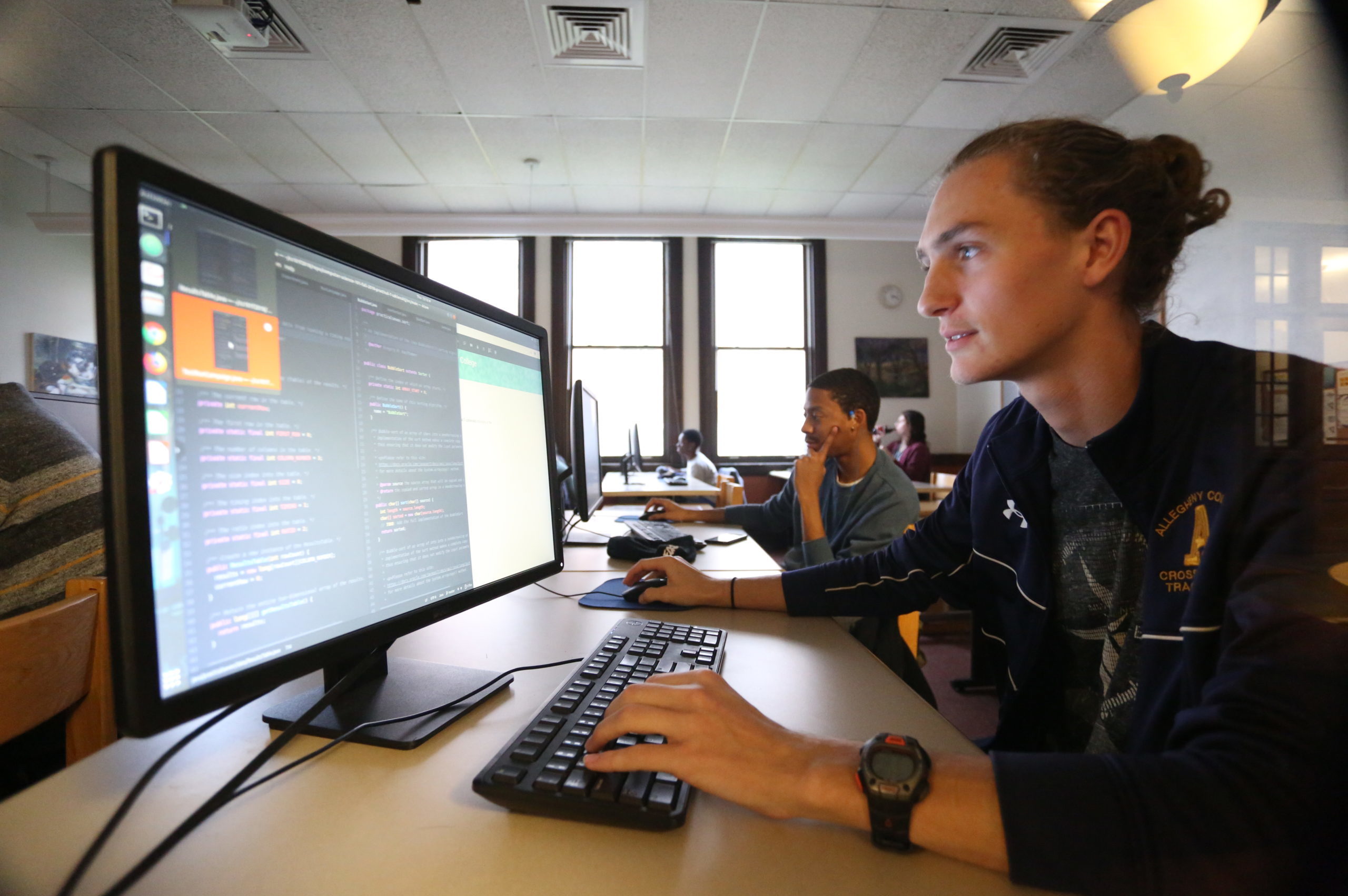
Delving Deeper
During their third year, students start to specialize, taking field courses in areas such as Accounting, Entrepreneurship, Finance, Human Resource Management, Marketing, Management. Besides their coursework, they have important side-jobs: applying their in-class experiences to understand and help decision-making by individuals and organizations, building their professional networks, and finding an internship for the following summer. By this time, students may be CBE Fellows, earned their Bloomberg Certification, or become members of the Wealth Management Club, Women in Business and Economics Club, or ODE, the national Economics Honors Society (open to both Business and Economics majors).
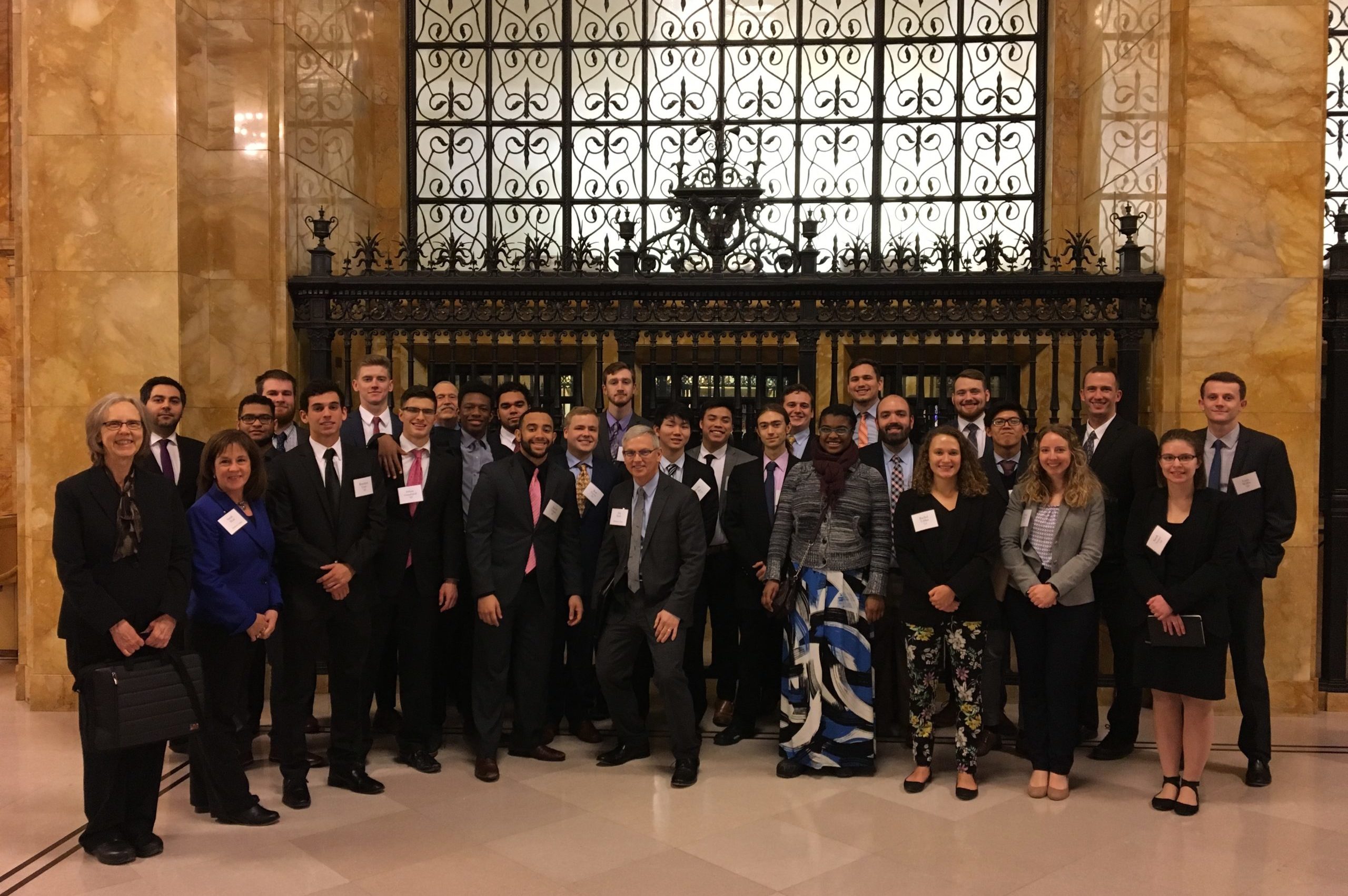
The Comp
During their final year at Allegheny, students complete their Senior Seminars and Senior Projects, the capstone of their time in college. Most alumni report that their Senior Projects were the most challenging and satisfying assignment that they did at Allegheny. The Senior Project allows students to find a topic that deeply interests them and study it, under faculty guidance, for an entire school year. Students also continue to engage in CBE events, building their professional networks with visitors to campus, and planning for jobs, graduate schools, and other post-graduation experiences. The vast majority of students who engage actively in learning both in and outside of the classroom have accepted a job, graduate school position or have other solid plans upon graduation.
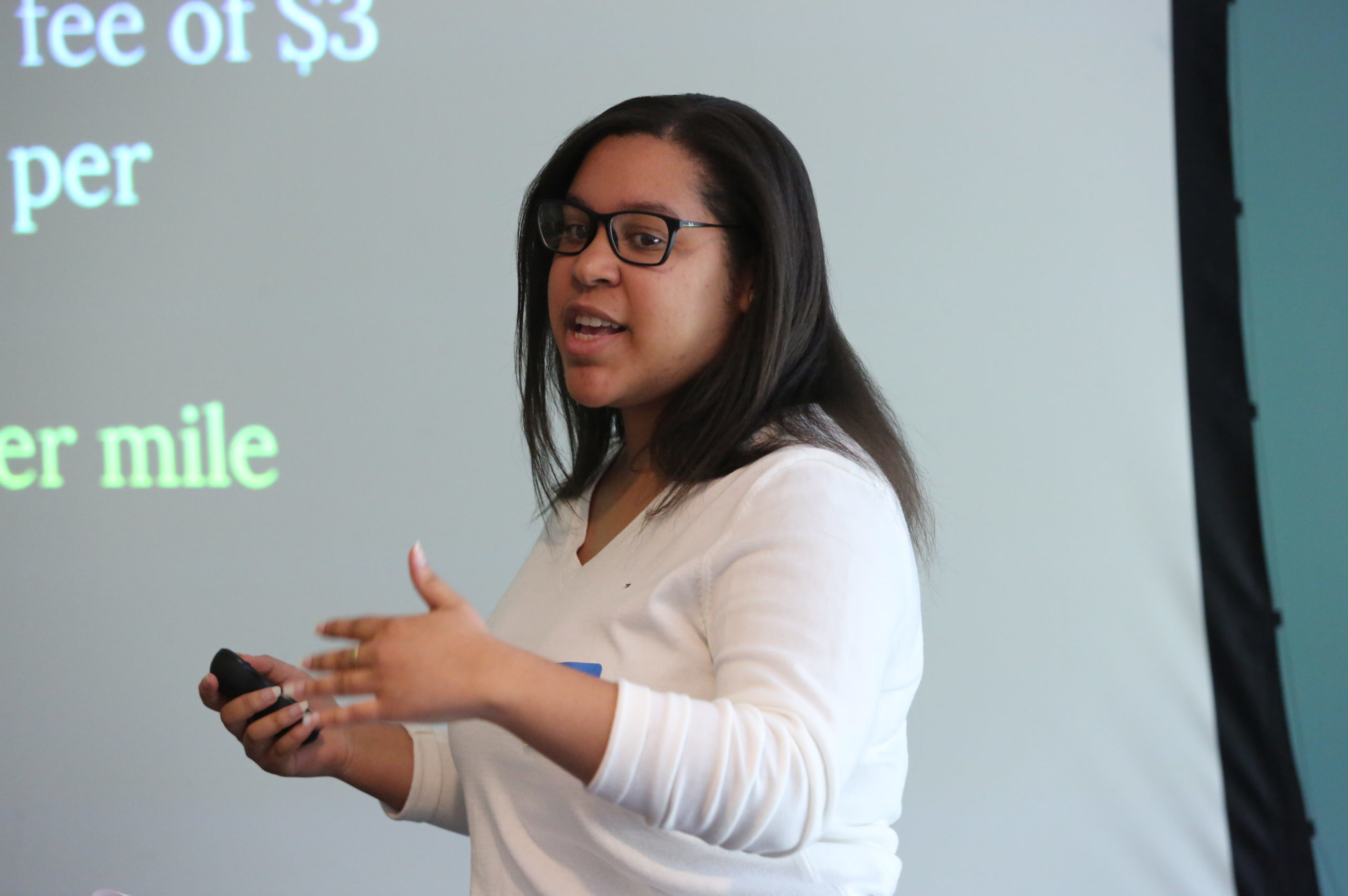
Career Outcomes
93
Of Allegheny graduates are employed, in grad school, or if in full-time service within six months of graduation.
100
Companies and other organizations come to campus to interview and recruit our students.
Alumni Careers — A Sampling
Class of 2020, Economics Major/Communications Arts Minor; Honors: A.L. Balinder Award, graduated with honors from the Economics Department
“ The Economics/Business Department is always adapting to make sure that courses are relevant to the most modern economic and business applications in the real world. Additionally, the professors really get to know students and their interests in order to best help them achieve their goals. ”
